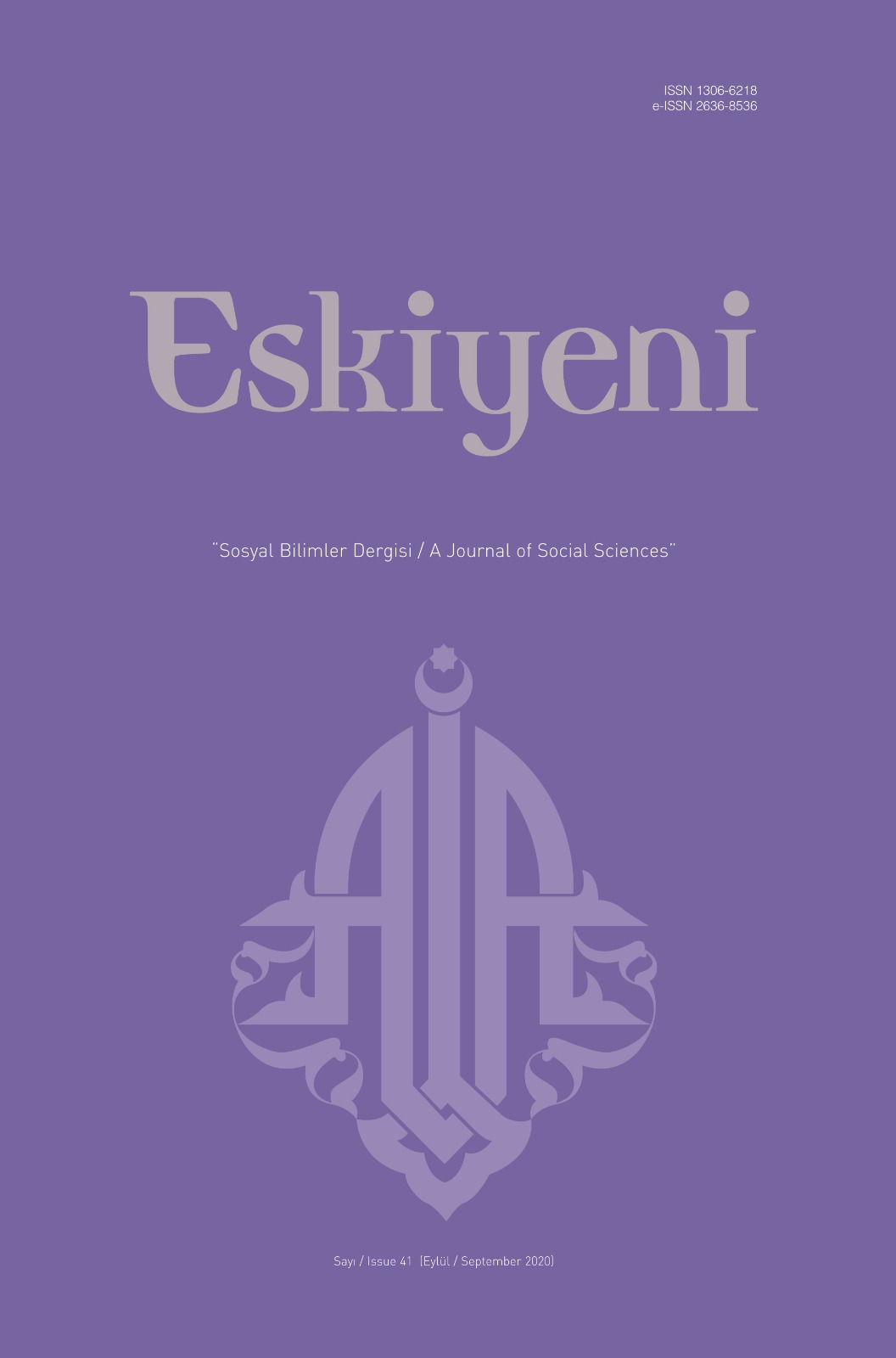İslâm Siyaset Tarihinin Meşhur Hatipleri: Dühât-ı Arab Örneği
Famous Orators of Islamic Political History: The Case of Duhāt al-‘Arab
Author(s): Melek Yılmaz GömbeyazSubject(s): Political history, History of Islam
Published by: Anadolu İlahiyat Akademisi
Keywords: Islamic History; Umayyads; ‘Amr b. al-‘Ās; al-Mughīra b. Shu‘ba; Ziyād b. Abih; Mu‘āwiya b. Abī Sufyān; duhāt al-‘Arab; Oratory;
Summary/Abstract: Dahā (الدَّهَاء) is a qualification formed by coming of several qualifications together such as reason, intelligence, wisdom, being good at repartee, ability to find prompt and influential solutions to problems etc.; and dāhī (الداهِي) is the person having these specialties at the highest level and becoming distinguished from other people. Duhāt al-‘Arab (دُهاة العرب), meaning genius figures of Arabs, are these being famous among Arabs as genius particularly in early Islamic period. This particular expression refers to a specific group with several persons, particularly four ones according to many narra-tions. These persons are ‘Amr b. al-‘Ās (d. 43/664), al-Mughīra b. Shu‘ba (d. 50/670), Ziyād b. Abih (d. 53/673), and Mu‘āwiya b. Abī Sufyān (d. 60/680). Narrations say that although dahā is a common characteristic of these four men, they have their own distinctive qualifications. For instance, ‘Amr b. al-‘Ās was a genius in solving difficult, problematic and very complicated issues and in intelligence and being good at repartee; al-Mughīra b. Shu‘ba was a genius in handling great problems with political solutions; Ziyād b. Abih was a genius in solving each small or big problems even if it requires violence; Mu‘āwiya b. Abī Sufyān was a genius in behaving after thinking broadly with patience and soberness. All these figures were also rulers at the highest positions in the government and became prominent with their capacity of using the art of oratory as well as genius. ‘Amr b. al-‘Ās from Mecca was commissioned in significant official duties during both the Prophet and the Rightly Guided Caliphates and assumed the title of “the Conqueror of Egypt” by virtues of military achievements along with political ones. His political genius clearly appeared with his critical intelligent move that saved Mu‘āwiya b. Abī Sufyān from defeat against the Caliph ‘Alī b. Abī Ṭālib at the Ṣiffīn war. Al-Mughīra b. Shu‘ba from al-Ṭā’if, like ‘Amr, served several official positions during both the Prophet and the Rightly Guided Cali-phates and successfully carried on the governorship of al-Baṣra and al-Kūfa at the period of Mu‘āwiya’s caliphate. He had very critical roles to have taken on the political scene: He, according to narrations, started the practice of sabb (the cursing of ‘Alī b. Abī Ṭālib) at the jum‘a prayer’s sermon, made important contributions to Mu‘āwiya in bringing Ziyād b. Abih who was his intimidating enemy into the fold, and finally, according to narrations, imbued Mu‘āwiya with appointing his son Yazīd to the throne after him, accordingly became influential on the transformation of the governmental system from caliphate to dynasty. Ziyād b. Abih, another one from al-Ṭā’if, managed to distinguish with his educational abilities and knowledge in accountancy in his early ages, as well as the high capacity of intelligence and oratory although he, as a son of slave parents, was at a highly disadvantaged position in terms of genealogy that was regarded as a critical reference in the Arab society. After many official duties, he became a very powerful governor that was seen as the most strong castle of Mu‘āwiya and the Umayyads. His famous sermon known as “Batrā” was just as very impressives as his activities. Mu‘āwiya b. Abī Sufyān, the only caliph from these four genius figures, firstly formed a strong team when he became a caliph and by doing this, he prefers the persons known as duhāt al-‘Arab. He found the opportunity to work together with these mentioned geniuses and took the advantage of them.The present article tries to examine the competence of these four figures in the art of oratory by studying the literary samples narrated about them such as sermons, apothegms, letters etc.; to point out their both personal and political backgrounds as a main factor of their genious and capacity of oratory by making connections between them; and to highlight that even if these persons called Arab genious have different characteristics, the significant common speciality of them is the high power of oratory.
Journal: Eskiyeni
- Issue Year: 2020
- Issue No: 41
- Page Range: 731-756
- Page Count: 26
- Language: Turkish

